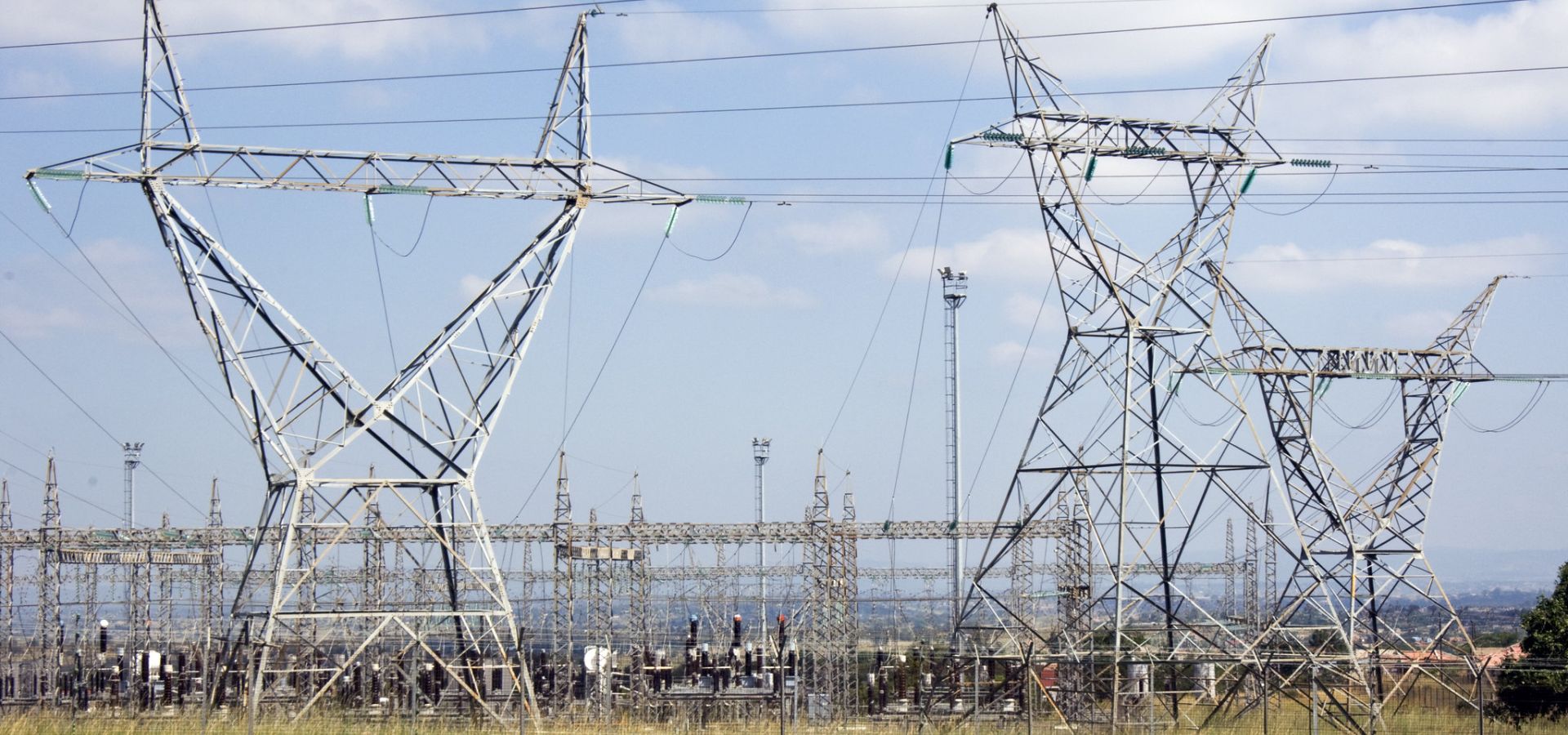The debt crisis that is crippling South Africa’s national power utility could open the way for the private sector to drive lower-carbon energy solutions in the form of utility-scale renewable projects and smaller community-level power suppliers. All it needs is for the energy ministry to approve the red tape that’s getting in the way, writes Leonie Joubert.

Can South Africa’s electricity supply soon be dominated by renewables? (Photo by Media Club, CC BY-SA 2.0)
The problems with South Africa’s power utility, Eskom, aren’t easy to fix. The fact that this beleaguered electricity producer has grabbed so much of this column’s attention in the past few years is because South Africa is the engine room of the regional economy, and Eskom is the company that keeps this far-reaching economy ticking over.
But as this column reported earlier in the year, the national utility is in crisis, following over a decade of mismanagement, corruption, and pro-coal vested interests which have left the biggest carbon-emitting state-run utility on the continent unable and unwilling to lead the charge towards a low-carbon energy grid.
Fixing Eskom isn’t going to be easy, according to leading energy infrastructure expert Anton Eberhard, emeritus professor from the University of Cape Town’s Graduate School of Business, and chair of the task team recently appointed by the president to come up with a rescue plan for the utility.
As hard as the utility’s problems are to fix, according to Eberhard, this crisis opens the field wide up for the private sector to move in with cheaper renewables, fill the energy gap, and nudge the country towards a development pathway that is in step with global energy trends.
The emergency rescue plan which the task team is developing includes unbundling the energy giant into three separate divisions, to help break its monopoly hold in the power sector. It will be separated into three entities: energy provision, transmission, and distribution.
Fixing its financial woes is far more difficult, though. Eskom is nearly Euro 26 billion (R420 billion) in debt, and can’t raise enough money to pay this debt or cover its operational costs. The state is helping bail the utility out, but the task team also recommends a ‘blended’ option of loans and climate finance from public, private and ‘alternative’ finance. Even if this money pans out, though, Eskom won’t be able to build more power stations beyond its commitment to complete the two giant power plants, Medupi and Kusile, reported on in April.
But while fixing Eskom is ‘difficult and challenging, the alternatives are actually quite easy,’ says Eberhard.
‘The private sector is ready to invest, and it is really very straightforward to free up this market.’
The Minister of Energy can speed up the opportunity for private energy producers to build utility-scale renewable plants under the state’s independent power producer (IPP) procurement process, which was stalled for two years, part-way through completion, because of deliberate obstruction by Eskom owing to pro-coal vested interests. Various commissions of enquiry and investigations into the corruption and political patronage may be clearing the logjam here, with the bidding processing kicking off again.
Eberhard says that prices for renewables – mostly solar and wind power – have fallen so fast in recent years that private firms are likely to start putting in bids of ‘well below 50 cents per kilo Watt hour (c/kWh) compared to Eskom’s average selling price of 102c/kWh’.
It won’t need lengthy bureaucratic red-tape or a new gazetted energy plan to get the next rounds of IPP bidding through sign-off, and for construction to begin on these plants.
There’s also considerable scope for small-scale energy providers to get into the mix, too.
‘There is a huge backlog of applications for licensing and registration from small energy suppliers, which could be cleared at the stroke of a pen,’ says Eberhard. This would need little more than the energy minister to gazette a new set of regulations that would exempt smaller energy plants from some of what he says are ‘unnecessarily restrictive’ regulations that are holding decentralised energy producers back.
Getting the state energy regulator to ‘simplify and accelerate registration procedures would unleash innovation and investment in many hundreds, perhaps even thousands, of small-scale distributed electricity generation plants’. This will also ease up pressure on Eskom and the grid.
A just transition in a middle-income economy like South Africa means many things. It means keeping energy trickling into people’s homes, so they can meet their basic daily needs. It means keeping the economy ticking over so people have jobs and livelihoods, in one of the most unequal societies in the world. It also means lowering the air pollution in neighbourhoods around mines and power stations around the economic heartland of the country, Johannesburg, with all the associated environmental pollution and health risks that come from these industries. A just transition also means bringing down the country’s carbon emissions to meet our global commitments to the UN. And it means redirecting the labour force away from mining and associated industries, to alternative forms of employment so that families who have been employed by this industry for decades aren’t left stranded.
The Eskom task team admit there’s no silver bullet solution to saving the floundering national utility, but all it takes is some political will to open up the free market to take up the slack of a faltering grid that’s build on old, dirty technology and is running into a state of disrepair. The next question, then, might be this: if this model for fast rollout of private sector energy solutions can work in South Africa, can it be replicated in other countries on the subcontinent to support economic development across the region?